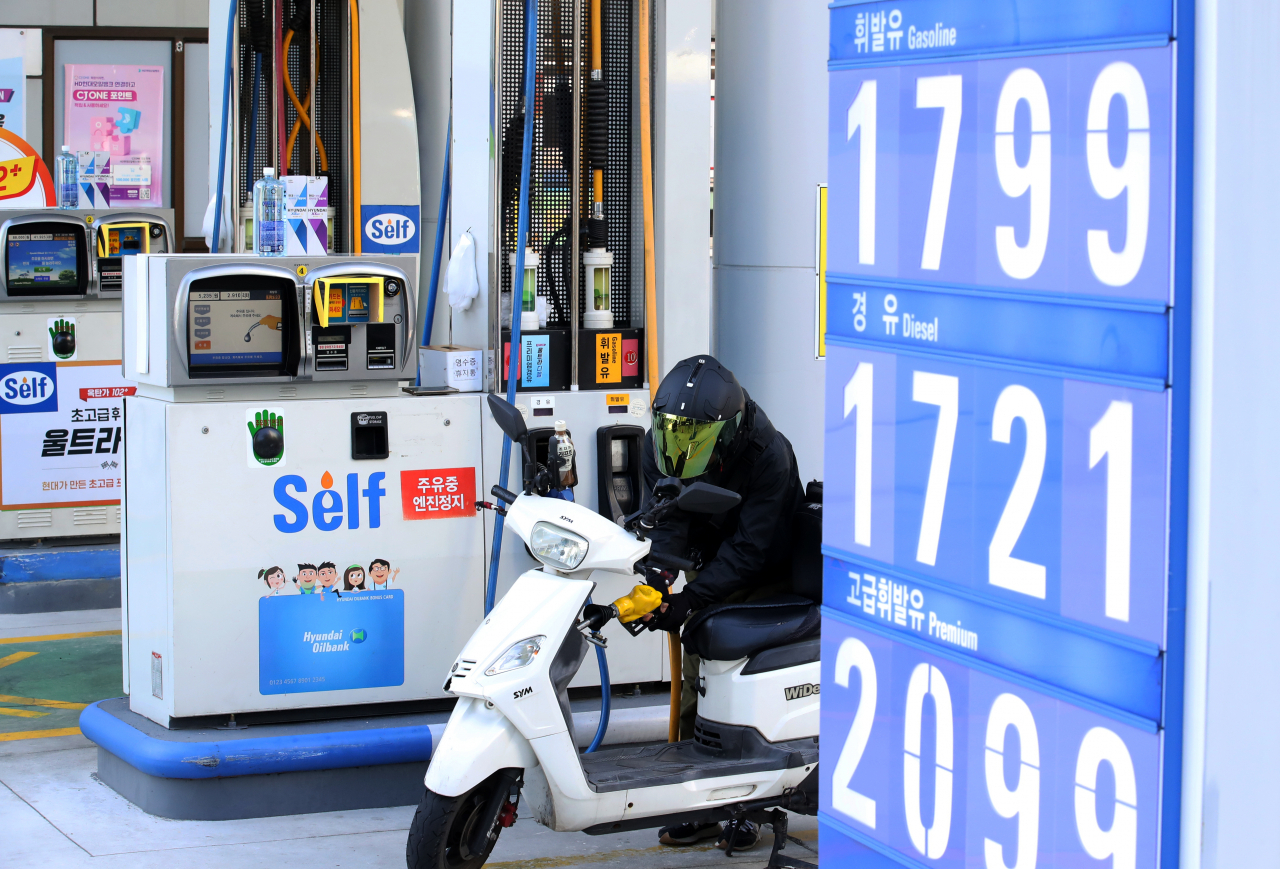
The Korean government will extend the current tax cut imposed on fuel until the end of the year, considering the escalated volatility in international oil prices following the renewed Israel-Hamas conflict, the Finance Ministry announced Monday.
Fuel tax reductions -- namely a 25 percent cut for gasoline as well as 37 percent cuts for diesel and butane -- which were to end in October, will last two more months through the end of this year, the ministry said.
Finance Minister Choo Kyung-ho assessed that the Israel-Hamas conflict's direct impact on Korea has been limited, though it could lead to fluctuations in international oil prices in the near future.
“The risk on energy and the supply chain can strengthen depending on how the Israel-Hamas crisis rolls out,” Choo said at a governmental meeting Monday. “We cannot rule out the possibility of facing difficulties again (due to the crisis) at a time when global inflation has been somewhat brought down.”
Though Korea has seen no major impact from the Israel-Hamas conflict on the country's imports of crude oil as Choo said, the volatility in international oil prices threatens the local economy.
“The crisis could lead to a rise in international oil prices and lead to escalated volatility on the real economy and financial market, including the foreign exchange market,” Choo explained.
In response, Korea is to continue its scheme to tame inflation by bringing down retail oil prices. The cut pulls down fuel prices by cutting a tax worth nearly 200 won (15 cents) per liter, depending on the fuel type.
With local retail oil prices yet to reflect the Israel-Hamas conflict as it normally takes two to three weeks for international prices to have an impact on the local market, figures inched down last week, showing signs of easing after reaching a peak earlier this month. It is the first time in 14 weeks for retail fuel prices to show a downward trajectory.
According to Opinet, a website operated by the Korea National Oil Corp., the retail price of gasoline stood at an average of 1,788.3 won per liter in the second week of October, down 7.7 won from the week before.
The price of diesel was 1,693.3 won per liter, down 3.8 won from the week before. It has moved down to the 1,600 won range a week after surpassing 1,700 won for the first time in nine months.
The fuel tax cuts were implemented in November 2021 as volatile oil prices put pressure on the Korean economy, which is heavily dependent on energy imports. To bring down inflationary pressure, the government will also extend subsidies for cargo truck drivers and others using diesel, natural gas vehicles.
Though prices jumped last week following the Hamas militants' attack on Israel, the international oil market has seen limited effect on prices as Israel and Gaza are not significant oil producers.
Yet, a further surge in international oil prices would be unavoidable if the crisis develops into a wider geopolitical tension for the Middle East region, involving neighboring nations such as Saudi Arabia and Iran.



















![[Today’s K-pop] Treasure to publish magazine for debut anniversary](http://res.heraldm.com/phpwas/restmb_idxmake.php?idx=642&simg=/content/image/2024/07/26/20240726050551_0.jpg&u=)